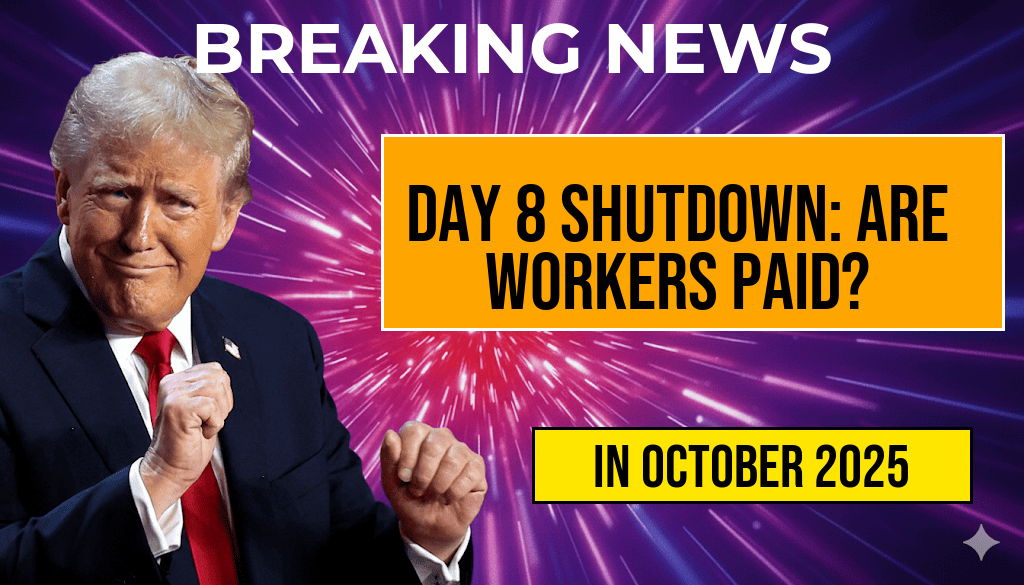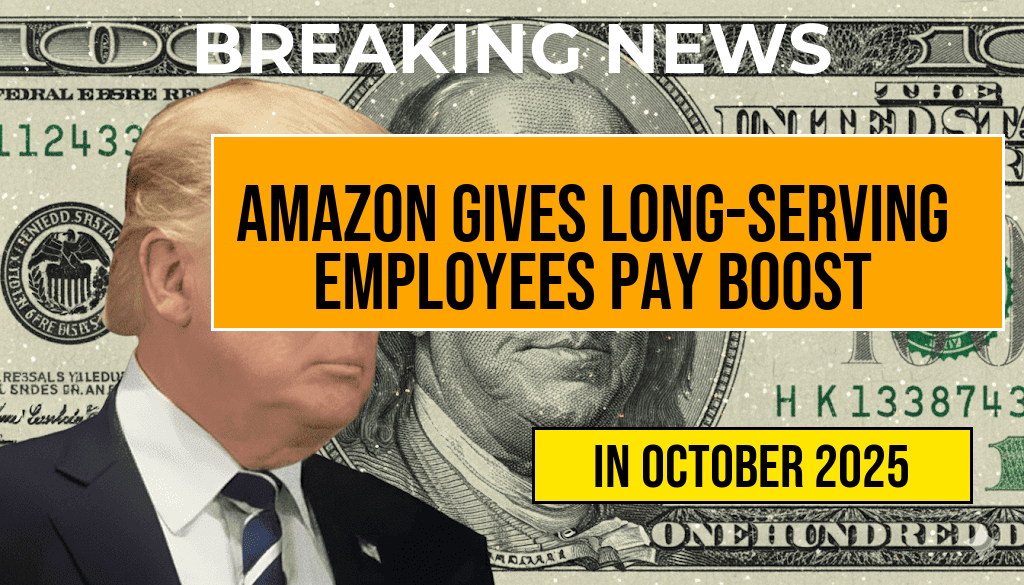As the federal government marks its eighth consecutive day of shutdown, thousands of federal workers are grappling with uncertainty over their paychecks. While some employees remain on active duty, others have been furloughed, leading to widespread financial stress. The impact extends beyond individual workers, affecting government operations, public services, and the broader economy. This ongoing impasse stems from unresolved budget negotiations, with lawmakers divided over funding priorities and policy provisions. As the shutdown persists, questions loom about whether federal workers will continue to receive full compensation or face no pay at all, raising concerns about financial stability and morale across agencies.
Federal Workers and the Shutdown: What’s at Stake?
Who Is Affected and How?
During a government shutdown, federal agencies face the difficult choice of suspending non-essential services and furloughing employees. Essential personnel, such as those in national security, emergency response, and health services, typically continue working without immediate pay. However, their compensation status varies depending on legislation passed to address the shutdown. Meanwhile, many employees in non-essential roles are placed on unpaid leave, leading to immediate financial hardship.
| Employee Category | Work Status | Pay Status |
|---|---|---|
| Essential Workers | On Duty | Typically Paid, but sometimes delayed |
| Furloughed Employees | Not Working | Usually No Pay during shutdown |
| Contractors | Varies | Often unpaid unless specified otherwise |
Legal and Political Framework
Federal law generally stipulates that essential personnel are entitled to back pay once funding is restored, but the timing of these payments can vary significantly. The federal shutdown process is governed by appropriations legislation, with lawmakers debating over funding levels and policy riders. The current deadlock reflects broader partisan disagreements, with some members advocating for policy concessions in exchange for appropriations approval.
The Financial Toll on Federal Employees
Immediate Hardships
Federal workers facing furloughs are experiencing acute financial strain. Many rely on their paychecks to cover rent, utilities, and everyday expenses, and the delay in compensation can lead to missed payments or increased reliance on credit. Some agencies have advised furloughed employees to explore unemployment benefits, though eligibility and processing times can vary by state. For essential workers, uncertainty about whether they will be paid retroactively adds to their stress.
Long-term Consequences
Beyond immediate financial difficulties, prolonged shutdowns risk undermining employee morale and productivity. Public trust in government institutions may also erode as delays and disruptions persist. Economists warn that extended shutdowns can dampen economic growth, with estimates suggesting that each week of shutdown costs the U.S. economy billions of dollars in lost output.
Government Agencies and Public Services Disrupted
Operational Impacts
Key federal agencies such as the Department of Homeland Security, the Internal Revenue Service (IRS), and the Environmental Protection Agency (EPA) face operational slowdowns or closures. National parks, museums, and other public facilities have reduced hours or are temporarily closed, affecting millions of visitors and local economies reliant on tourism.
Public Safety and Health
While critical functions like border security and emergency response continue, other services such as visa processing, federal grants, and research programs are halted. The disruption compounds existing challenges faced by agencies tasked with public safety and health, potentially delaying responses and service delivery.
Lawmakers and the Path Forward
Negotiation Dynamics
Negotiations on Capitol Hill remain tense, with negotiators seeking a resolution that satisfies both sides’ priorities. The Biden administration has urged lawmakers to pass a clean funding bill to reopen the government fully, emphasizing the importance of providing full compensation to federal workers. Conversely, some legislators are pushing for policy concessions related to immigration, military funding, and other contentious issues.
Potential Solutions
- Passing a short-term funding extension to prevent further disruption
- Negotiating a long-term budget agreement
- Including provisions to ensure timely payment for affected federal employees
Expert Perspectives and Public Sentiment
Economic and Policy Experts
Economists warn that repeated shutdowns threaten to weaken economic recovery, especially if they become protracted. Dr. Laura Jones, an economist at the University of Michigan, notes, “The financial strain on federal workers and the ripple effects across sectors underscore the urgent need for bipartisan cooperation to prevent recurrent shutdowns.”
Public and Worker Reactions
Federal employees express frustration over the uncertainty, with many sharing stories of financial hardship on social media. Public opinion polls indicate a growing concern about government stability and the political gridlock fueling the shutdown.
Resources and Support for Affected Federal Workers
- Federal Employee Assistance Program: OPM EAP
- Unemployment Benefits Information: Check with state agencies
- Legal Advice and Advocacy Groups: Various organizations offer guidance during shutdowns
As the shutdown enters its eighth day, the urgency for a bipartisan resolution grows. Federal workers, government agencies, and the American public await a decision that will restore stability and ensure that those serving the nation are compensated fairly and promptly.
Frequently Asked Questions
What is the current status of federal workers’ pay during the Day 8 of the shutdown?
As of now, federal workers are facing No Pay for their work during the shutdown, though some may receive full compensation once the government reopens, depending on legislative decisions.
How long might federal workers go without pay due to the shutdown?
The duration of no pay for federal workers depends on how long the shutdown lasts and the actions taken by Congress to resolve the funding impasse.
Are federal employees eligible for any financial assistance during the shutdown?
Some federal employees may be eligible for emergency loans or financial assistance programs offered by various agencies or organizations, but these are not guaranteed and vary by situation.
What steps can federal workers take to manage financial hardships caused by the shutdown?
Federal workers are advised to review their budget, seek emergency assistance if available, and contact their employee assistance programs or unions for support and guidance during this period.
Will federal workers receive full compensation after the shutdown ends?
Typically, federal workers are expected to receive full back pay for the period they worked during the shutdown once funding is restored, but this depends on legislation passed by Congress.








